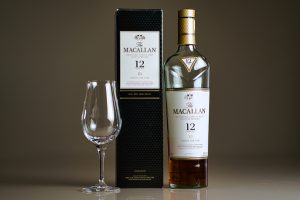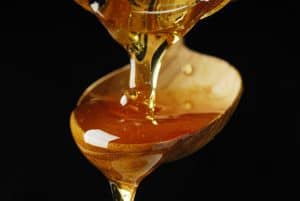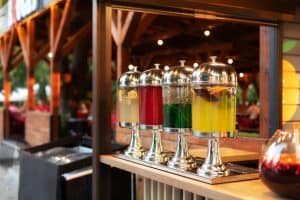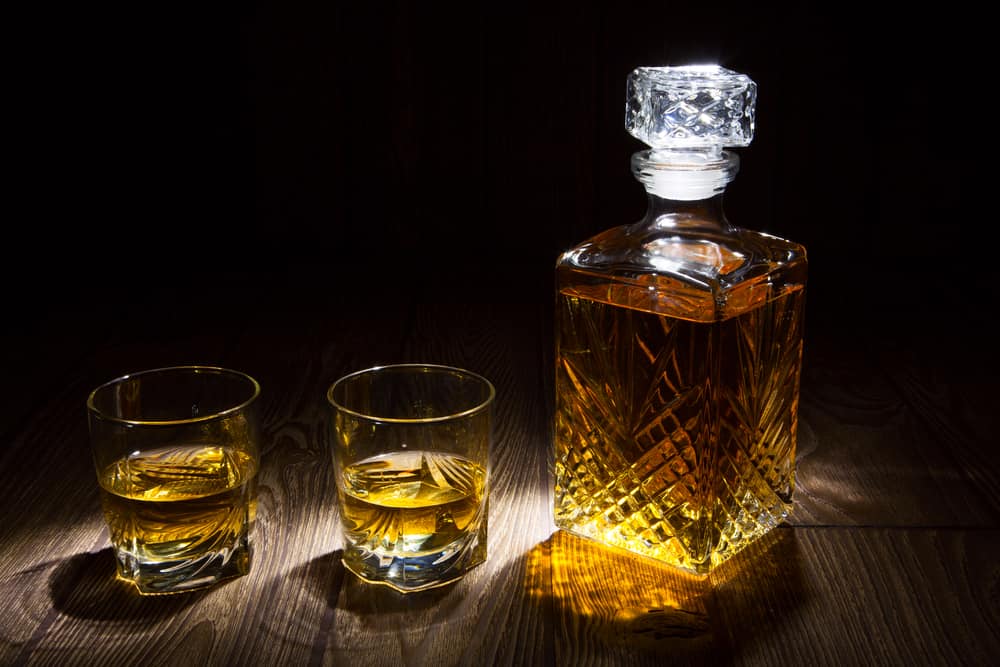
Despite the pomp and circumstance surrounding decanters, they are, in essence, a fairly simple piece of glassware whose purpose can be recognized by even the most inexperienced whiskey fans.
As described, a decanter is any receptacle to hold an amount of liquid. As a result, decanting whiskey, wine, or any other type of alcoholic beverage, is just pouring it from the original bottle into a decanter.
You might wonder, then, what does a whiskey decanter do?
The top five purposes of a whiskey decanter are:
- Aesthetics;
- Portion control;
- Creating your whiskey blends;
- Storing whiskey;
- Keeping your whiskey safe.
We’ll examine the decanter’s history before diving into the purpose of having a whiskey decanter at your bar or on a shelf.
The Purpose of Whiskey Decanters
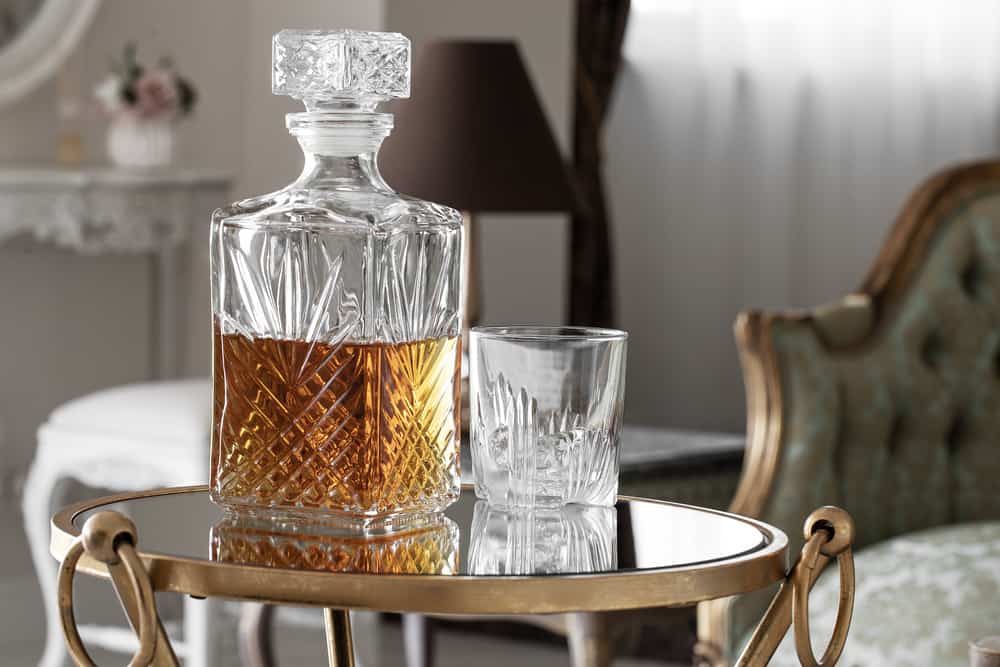
Now you might wonder, is a decanter a good way to serve whiskey? Both yes and no.
We tend to swing more towards no rather than yes. It’s a decision you don’t have to make, like a tattoo no one can see, but it also can’t do much harm, especially if you want to consume that whiskey shortly.
We’ll break down the five purposes of whiskey decanters below to help you decide whether you want to decant your whiskey or not.
1. Aesthetics
Decanters began as a practical solution to a problem but moved on to become an aesthetic icon in the home bar. There are awesome designs to elevate your whiskey-drinking experience and even get you some compliments from friends.
Vanity and compliments aside, because you’re exhibiting your whiskey in a transparent, colorless container, you’ll be able to better assess its color and texture—both of which are important factors in any true connoisseur’s judgment.
Or, you can turn it into a guessing game with several decanters, each containing a different type of whiskey.
2. Portion Control
When it comes to entertaining, there are many practical reasons to buy a decanter, and the most important is to control your whiskey supply.
With a decanter, you may control your visitors’ consumption without the unpleasant interchange that results from a very thirsty drinker. As far as they know, once the decanter is empty, that’s the end of the evening. Whiskey is also to be appreciated and not chugged down.
3. Create Your Blend
While this might sound like a total sacrilege in whiskey circles, those who are more daring can experiment and create their blend. You will probably need several decanters if you have the cash to burn.
You have total command over the contents of your serving dish. While you may be unable to change its scents by exposing it to more air, you may combine several distinct types.
You’d be hard-pressed to try such an experiment if you were working within the original bottle, whether you consider it blasphemy or a stroke of brilliance.
4. You Can Store Whiskey
A decanter with an airtight seal will preserve your whiskey’s taste.
Remember, a 12-year-old whiskey will remain just that—a 12-year-old whiskey because once whiskey is bottled, it does not age like wine.
5. Keep Your Whiskey Safe
Although a decanter will not prevent a spill, it is far more sturdy than a bottle of the good stuff when entertaining guests. Unfortunately, accidents do happen. Using a decanter to serve your whiskey is an extra precaution.
Because of their wide, solid base and low center of gravity, these containers are far safer than off-the-shelf bottles in crowded situations.
A careless gesture or an errant elbow can send a bottle of whiskey flying, but a decanter will keep your spirit secure and upright, even if some leaking occurs.
You may call it overprotectiveness, but if you’re sharing a Scotch that is old enough to have voting rights, it’s preferable not to take any chances.
What Decanters Cannot Do
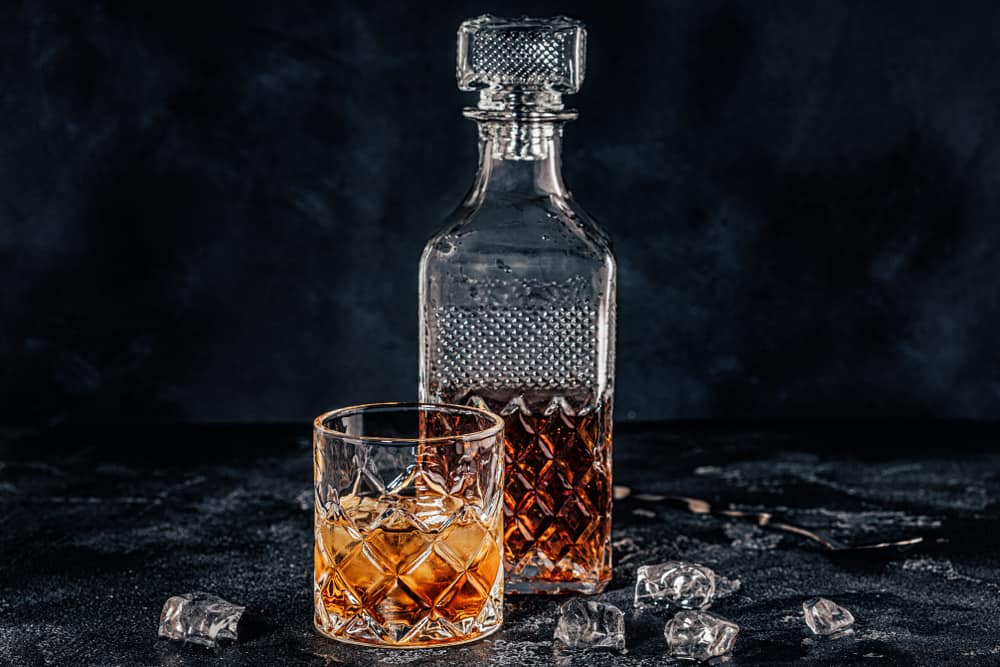
A decanter will not turn bottom-shelf whiskey into a top-shelf single malt. Of course, whiskey always tastes better after some time to breathe, yet, the effect is considerably more rapid than a good bottle of wine.
It doesn’t take long to aerate whiskey before serving because it happens as soon as it’s poured into the glass.
There may be a tiny improvement, but don’t expect a decanter to significantly improve the flavor of your whiskey.
Decanting the Decanter’s Background
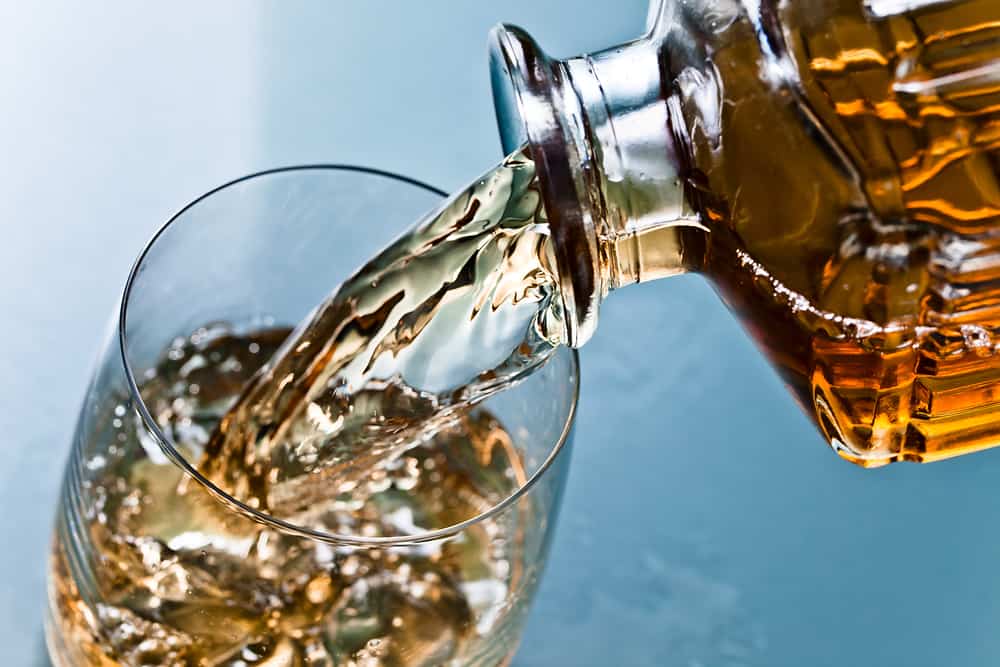
Decanters were originally designed to store wine and became popular in England around the turn of the 18th century.
Because drinkers were spending large amounts of money on fine wines, they wanted a container to serve and store their wines (and probably show off their wealth and taste to guests).
Decanters also served a critical need—wines were shipped unfiltered, and the bitter sediment (lees) would be in the bottle or barrels. A clear decanter allowed them to see the lees and pour them carefully to avoid getting them into the glass and contaminating the wine’s taste.
These pieces of glassware successfully oxidized the wine they were keeping by expanding the surface area of the air contained within. When wine is exposed to air, it causes a chemical reaction that causes specific chemicals within the liquid to evaporate.
Because the more unpleasant—or “off” tasting—of these molecules tend to evaporate first, the remaining wine tastes better, with richer, more consistent tastes and fragrances.
However, although some aeration is essential to one’s wine taste, too much of it adds to an accelerated aging process and, as a result, some staleness.
Nothing much changed about decanters, although some minor variations in materials (such as lead-free crystal decanters) and decorations were introduced.
However, as the higher classes and CEOs began to serve their spirits in decanters, they were more closely identified with social standing. And, thanks to their representation in films and on television, they’ve become far more important than a simple crystal container.
Even today, decanters are traditionally reserved for social situations when appearance is a top priority.
Conclusion
Although there is no need to decant whiskey, a whiskey decanter can spruce up your bar cart, make inexpensive whiskey appear pretty good, and help you regulate how much your visitors drink.
Instead of giving them the entire bottle, pour some into the decanter—it will keep them from overindulging, but you’ll have some leftovers in the original bottle when they’ve finished.


